Items
Search full-text
“Screen Australia launches an access coordinator training program”
-
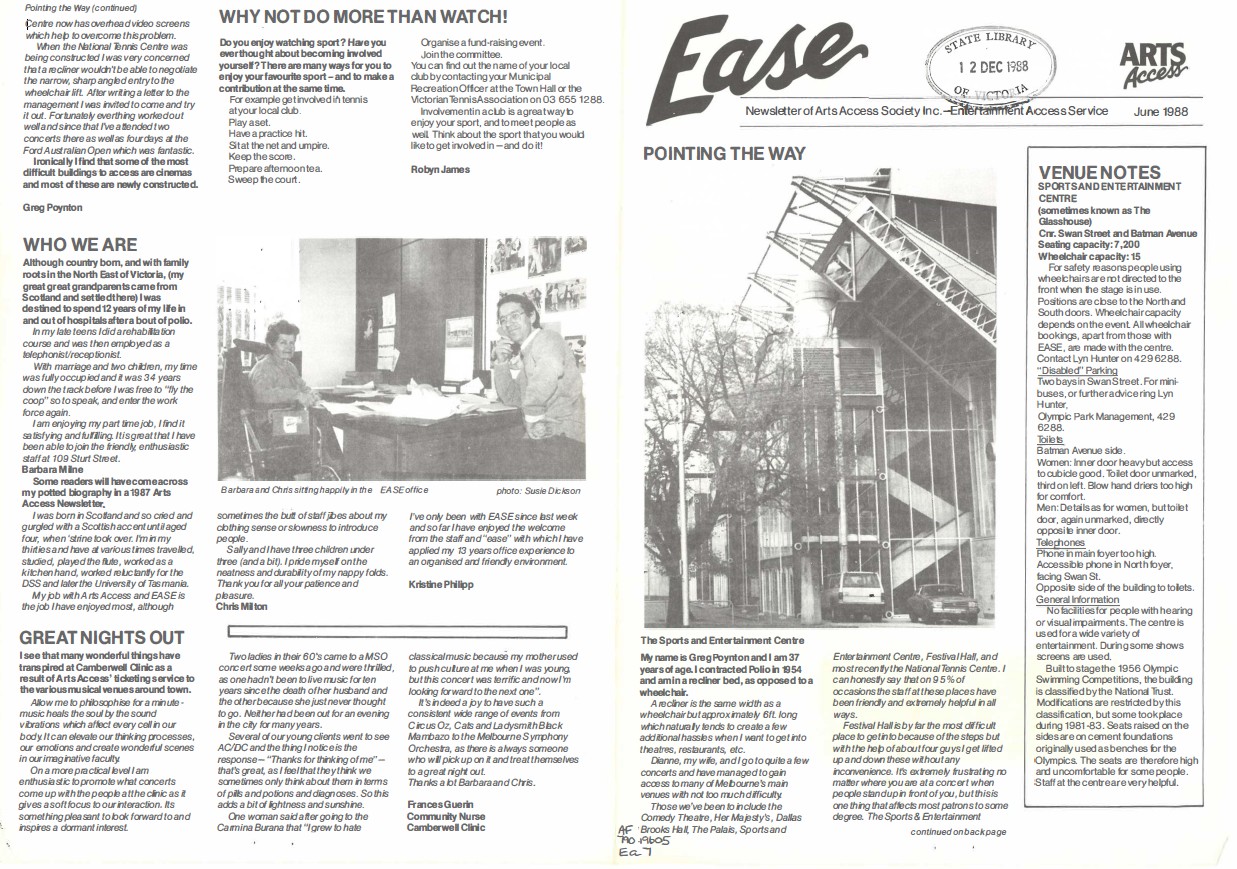 “Arts Access Victoria - Arts Access Society Inc.- EASE Entertainment Access Service Newsletter June 1988”
“Arts Access Victoria - Arts Access Society Inc.- EASE Entertainment Access Service Newsletter June 1988” -
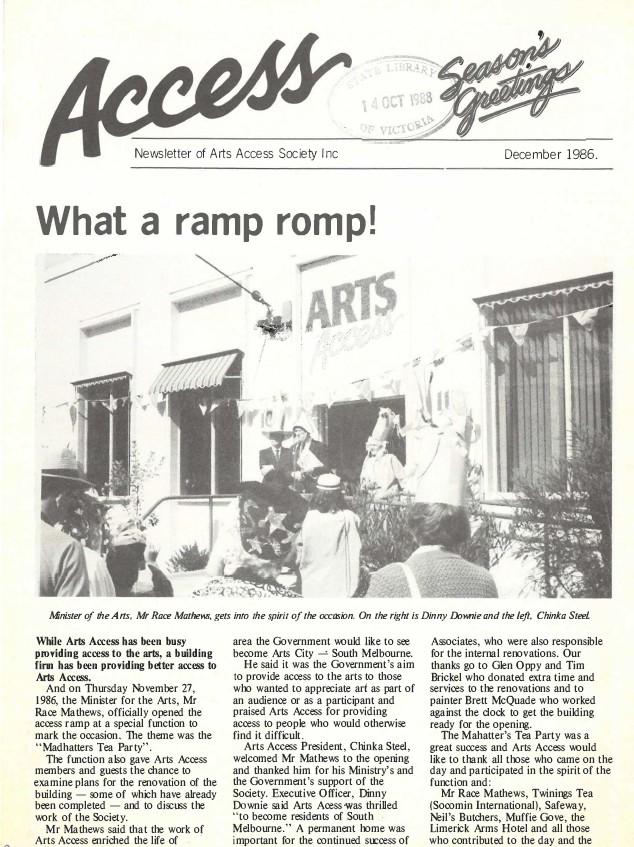 “Arts Access Victoria - Arts Access Society Inc. - Access Newsletter December 1986”
“Arts Access Victoria - Arts Access Society Inc. - Access Newsletter December 1986” -
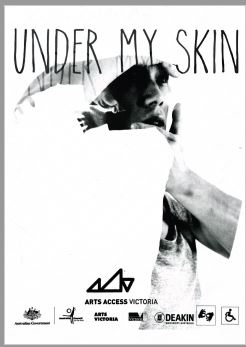 "Arts Access Victoria - The Delta Project - Under My Skin - Promotional Flyer" Arts Access Victoria The Delta Project Under My Skin 2016 Promotional card – reads in part “A development showing of a new dance work from The Delta Project, a Melbourne based dance company of deaf and hearing performers. Under my Skin brings together two worlds through visual and sound, creating a performance accessible for both deaf and hearing audiences”
"Arts Access Victoria - The Delta Project - Under My Skin - Promotional Flyer" Arts Access Victoria The Delta Project Under My Skin 2016 Promotional card – reads in part “A development showing of a new dance work from The Delta Project, a Melbourne based dance company of deaf and hearing performers. Under my Skin brings together two worlds through visual and sound, creating a performance accessible for both deaf and hearing audiences” - Australian Ballet
-
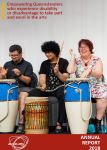 "Access Arts Annual Report 2018" Access Arts Annual Report 2018 - Brisbane Outsider Artists (BOA), Visual Arts Studio, Access Arts Singers, Rhythm Circle Drummers, Theatre and Dance Ensemble, Circus and Dance Workshop, First Nations Projects, Professional Development, Grants, Awards, National Disability Insurance Scheme (NDIS)
"Access Arts Annual Report 2018" Access Arts Annual Report 2018 - Brisbane Outsider Artists (BOA), Visual Arts Studio, Access Arts Singers, Rhythm Circle Drummers, Theatre and Dance Ensemble, Circus and Dance Workshop, First Nations Projects, Professional Development, Grants, Awards, National Disability Insurance Scheme (NDIS) -
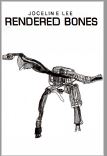 "Arts Access Victoria - Rendered Bones Exhibition Program"
"Arts Access Victoria - Rendered Bones Exhibition Program" - Melbourne Museum
-
“Access Arts commissions a multi-arts project, Peter Vance performs the song ‘Welcome to My Day’ at the 1999 Wataboshi Festival in Japan” Peter Vance was asked by Access Arts to team up with Ant McKenna to compose a song. He then performed ‘Welcome to My Day’ at the 5th Asia Pacific Wataboshi Music Festival in Japan in 1999. Access Arts sent disposable cameras out to members across Queensland; each story became a collage in the State Library foyer as a day-in-the-life of each artist.
-
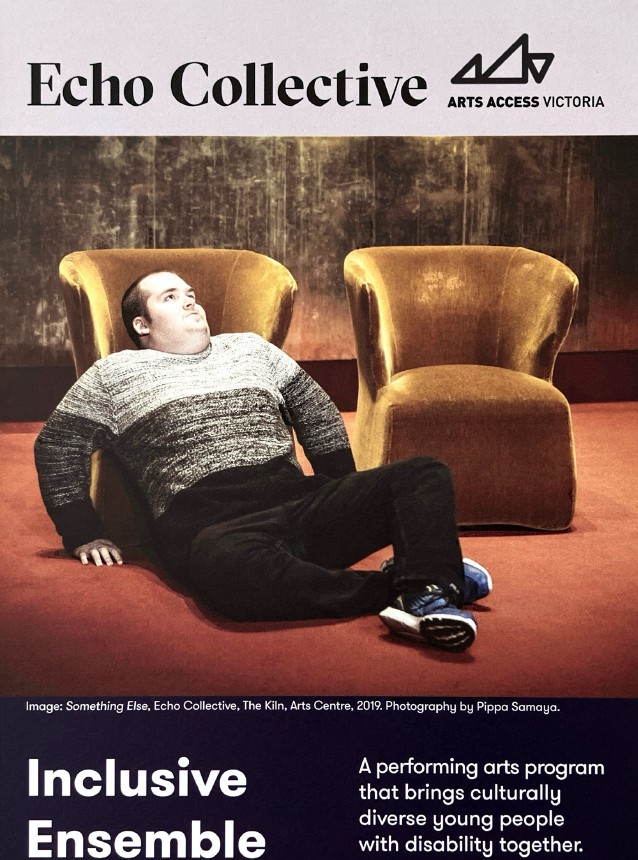 “Arts Access Victoria – Inclusive Ensemble - Echo Collective - Promotional Flyer"
“Arts Access Victoria – Inclusive Ensemble - Echo Collective - Promotional Flyer" -
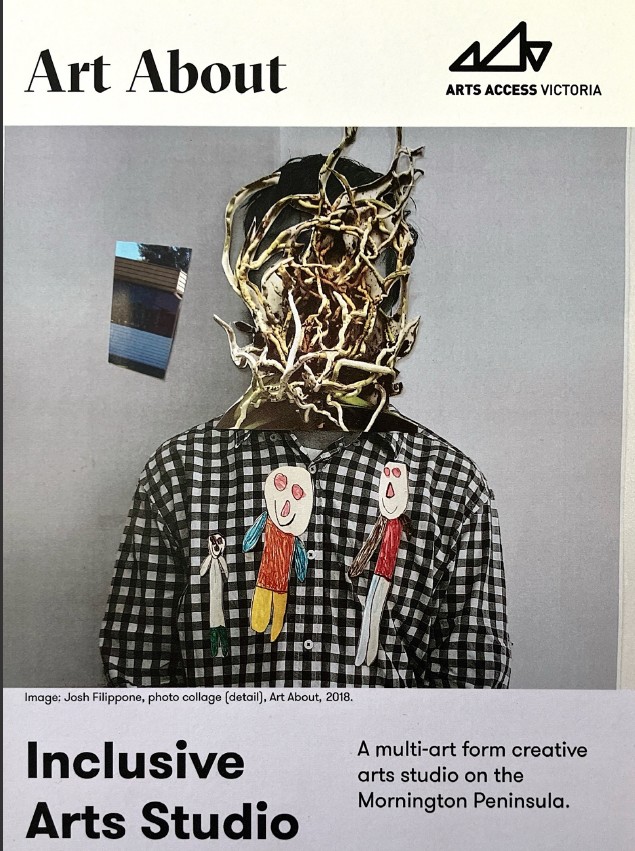 “Arts Access Victoria – Inclusive Arts Studio - Art About - Promotional Flyer"
“Arts Access Victoria – Inclusive Arts Studio - Art About - Promotional Flyer" -
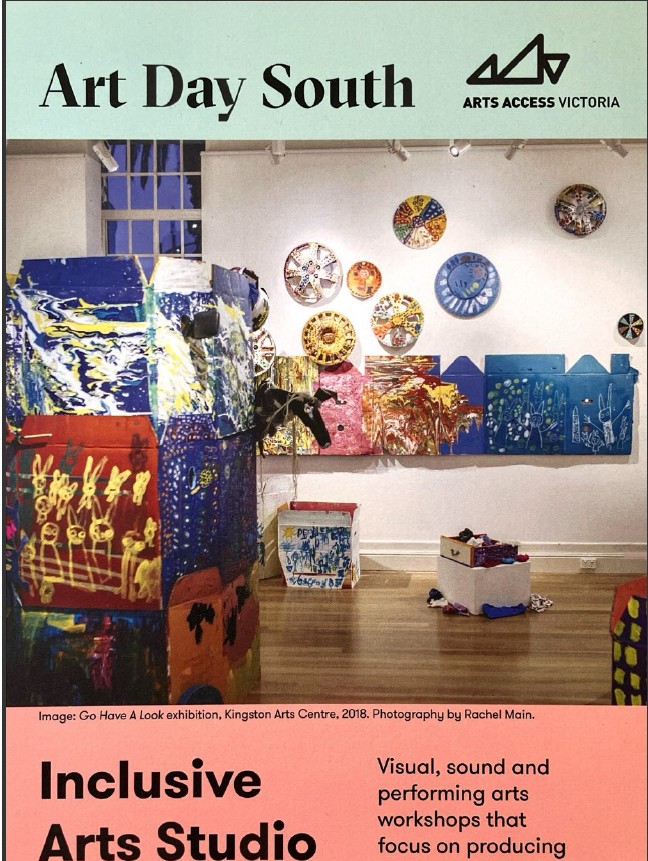 “Arts Access Victoria – Inclusive Arts Studio - Arts Day South - Promotional Flyer"
“Arts Access Victoria – Inclusive Arts Studio - Arts Day South - Promotional Flyer" -
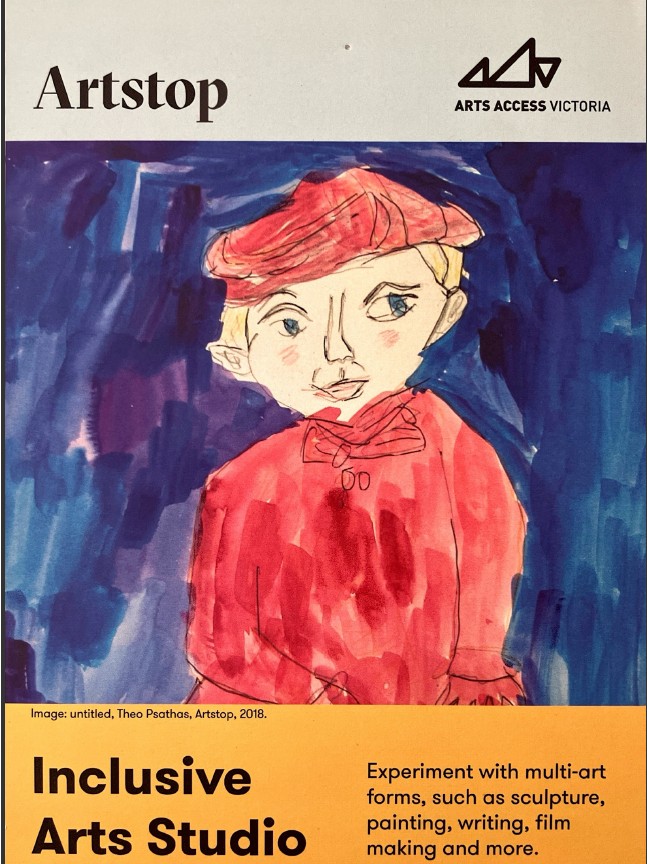 “Arts Access Victoria – Inclusive Arts Studio - Artstop - Promotional Flyer"
“Arts Access Victoria – Inclusive Arts Studio - Artstop - Promotional Flyer" -
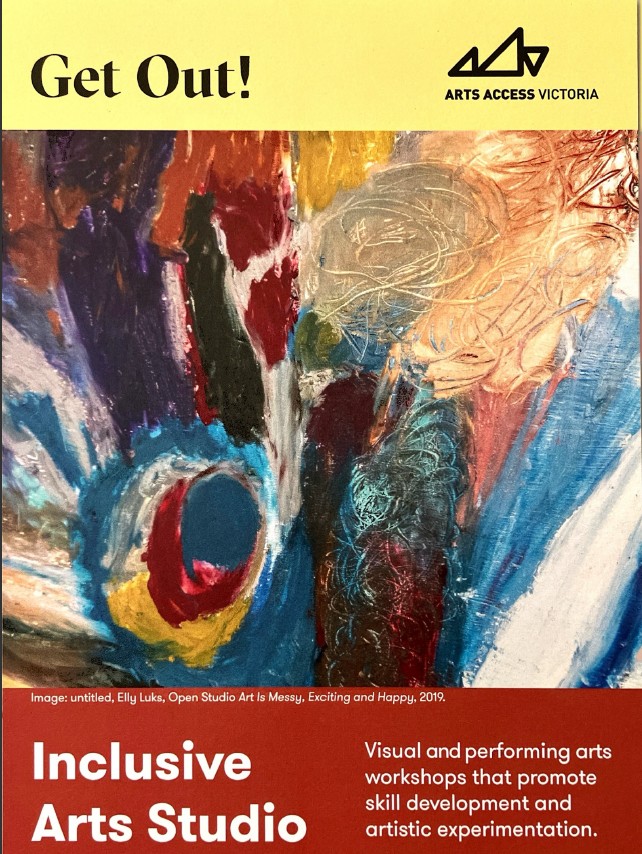 “Arts Access Victoria – Inclusive Arts Studio - Get Out - Promotional Flyer"
“Arts Access Victoria – Inclusive Arts Studio - Get Out - Promotional Flyer" -
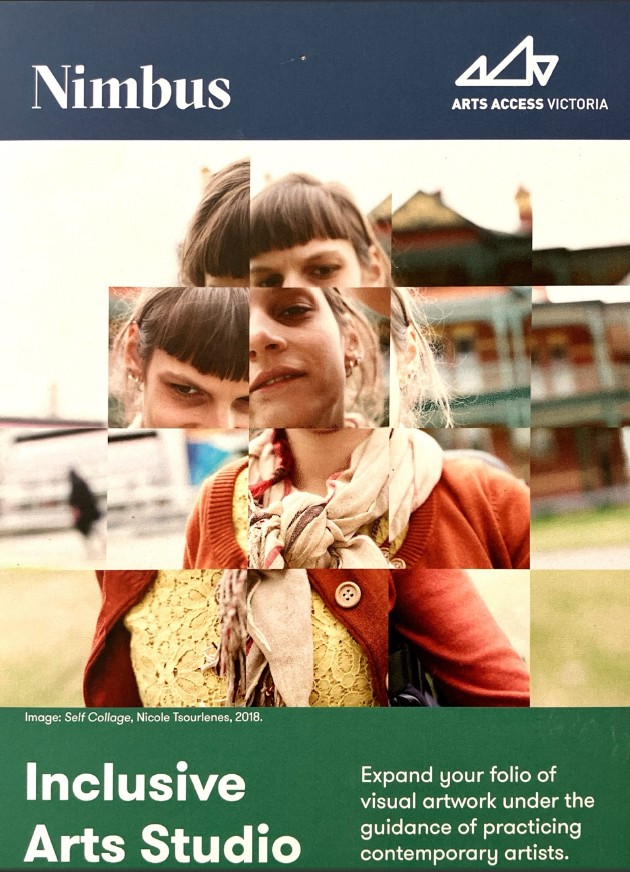 “Arts Access Victoria – Inclusive Arts Studio - Nimbus - Promotional Flyer"
“Arts Access Victoria – Inclusive Arts Studio - Nimbus - Promotional Flyer" -
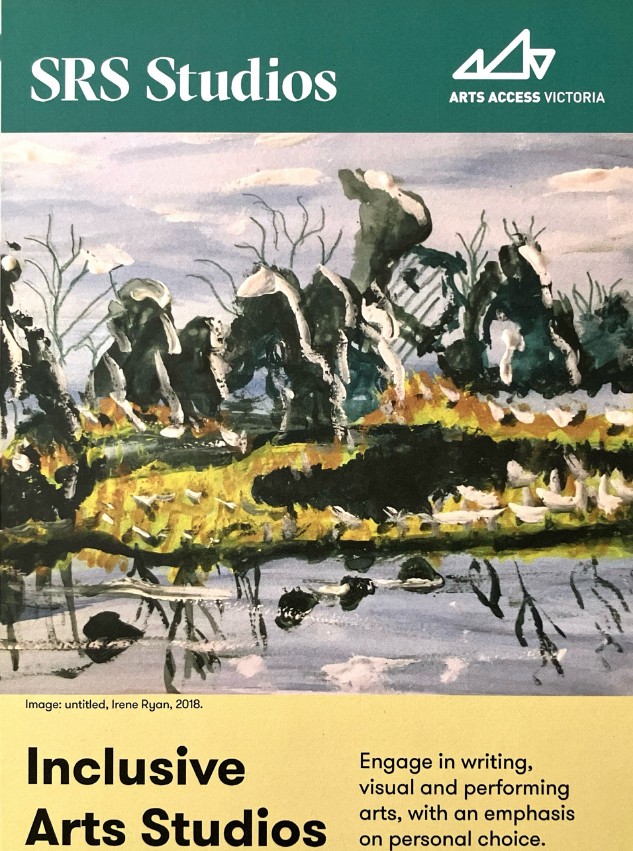 “Arts Access Victoria – Inclusive Arts Studio - SRS Studios- Promotional Flyer"
“Arts Access Victoria – Inclusive Arts Studio - SRS Studios- Promotional Flyer" -
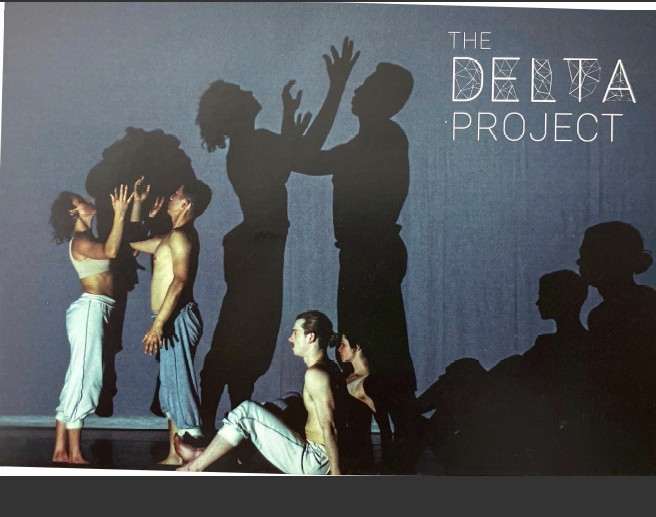 "Arts Access Victoria - The Delta Project - Promotional Postcard"
"Arts Access Victoria - The Delta Project - Promotional Postcard" -
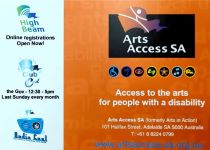 "Access to the Arts for People with Disabilities" Flyer, reading "Arts Access SA creates opportunities for participation and leadership for people with a disability in South Australia's arts and cultural life."
"Access to the Arts for People with Disabilities" Flyer, reading "Arts Access SA creates opportunities for participation and leadership for people with a disability in South Australia's arts and cultural life." - Sarah Austin
- Lachlan MacDowall
-
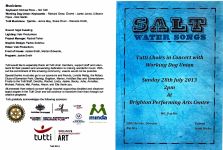 "Tutti Arts - Saltwater Songs Concert - Program" Tutti Arts ‘Saltwater Songs’ 2013 Program – reads, in part “Tutti is Australia's first inclusive choi r and takes its name from the musical term 'Tutti' meaning everyone. From its origins as a small singing group at Minda, the original choir has grown into a vibrant independent multi arts organisation (Tutti Inc) deeply connect- into the disability and mainstream arts worlds of South Australia and beyond.”
"Tutti Arts - Saltwater Songs Concert - Program" Tutti Arts ‘Saltwater Songs’ 2013 Program – reads, in part “Tutti is Australia's first inclusive choi r and takes its name from the musical term 'Tutti' meaning everyone. From its origins as a small singing group at Minda, the original choir has grown into a vibrant independent multi arts organisation (Tutti Inc) deeply connect- into the disability and mainstream arts worlds of South Australia and beyond.” -
"Sarah Austin, Kath Duncan, Gerard Goggin, Lachlan MacDowall, Veronica Pardo, Eddie Paterson, Jax Jacki Brown, Morwenna Collett, Fiona Cook, Bree Hadley, Jess Kapuscinski-Evans, Donna McDonald, Julie McNamara, Gayle Mellis, Kate Sulan (2019). The last avant garde? In B. Hadley, D. McDonald ed. The Routledge Handbook of Disability Art, Culture, and Media. London & New York: Routledge, 251-262." "“The Australian Research Council project Disability and the Performing Arts in Australia: Beyond the Social Model – known to collaborators as the last avant garde – is mapping disability performing arts in Australia. We open up this chapter, and our ongoing research project, with the words of the late Tobin Siebers. In researching disability and performance here in Australia, we also acknowledge that since Siebers’ 2010 text, we have seen new experiments and emerging companies pushing the bounds of how bodies feel – in a sector which embraces differences in bodies, but also in thinking, in neurodiversities, in being, in articulating, in appearing, in sensing, in intersectionalities, and in the experiences for audiences. As such, this chapter aims to explore ‘disability aesthetics’ not as a set of specific techniques, themes, or politics, but in order to position disability at the centre of ‘future conceptions of what art is’ and what it can be.”
-
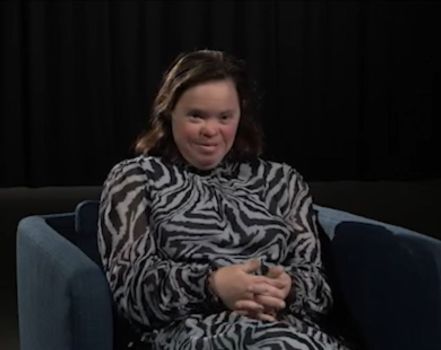 "Interview with Tina Fielding" Tina is a writer, actor, film maker and disability advocate Interview Summary Tina is an actress with Down Syndrome who identifies strongly with her art form, viewing her disability as an ability that enhances her talent and quality in storytelling through acting. She enjoys the process of acting and finds joy in watching her family perform, which inspired her to pursue the craft; however, she acknowledges that there are difficult moments that can be challenging but ultimately rewarding. Her artistic journey has involved working with various local companies in Perth and her work has evolved by adapting to new roles, with the aim of authenticity in her performances. Tina's influence and acknowledgment in the field are growing, noted by positive media attention, and she encourages other artists with disabilities to embrace and identify with their unique abilities.
"Interview with Tina Fielding" Tina is a writer, actor, film maker and disability advocate Interview Summary Tina is an actress with Down Syndrome who identifies strongly with her art form, viewing her disability as an ability that enhances her talent and quality in storytelling through acting. She enjoys the process of acting and finds joy in watching her family perform, which inspired her to pursue the craft; however, she acknowledges that there are difficult moments that can be challenging but ultimately rewarding. Her artistic journey has involved working with various local companies in Perth and her work has evolved by adapting to new roles, with the aim of authenticity in her performances. Tina's influence and acknowledgment in the field are growing, noted by positive media attention, and she encourages other artists with disabilities to embrace and identify with their unique abilities. -
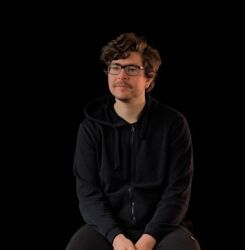 "Interview with Michael Noble" Michael Noble is a professional dancer and performer and has been with Restless Dance Theatre since 2015. Interview Summary Michael Noble is an ex-foster kid turned contemporary dancer at Restless Dance Theatre, who started in arts as an outlet for expression. His dance style has evolved from literal interpretations to more abstract movements, as Restless has supported his growth and mental health needs. Being in a company that accommodates artists with disabilities has led Michael to explore his own neurodivergence, specifically relating to being on the autism spectrum. He believes art, including the political, is less about the message itself and more about being the messenger for another's vision or interpreting and sharing one's own perspectives.
"Interview with Michael Noble" Michael Noble is a professional dancer and performer and has been with Restless Dance Theatre since 2015. Interview Summary Michael Noble is an ex-foster kid turned contemporary dancer at Restless Dance Theatre, who started in arts as an outlet for expression. His dance style has evolved from literal interpretations to more abstract movements, as Restless has supported his growth and mental health needs. Being in a company that accommodates artists with disabilities has led Michael to explore his own neurodivergence, specifically relating to being on the autism spectrum. He believes art, including the political, is less about the message itself and more about being the messenger for another's vision or interpreting and sharing one's own perspectives. -
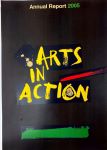 "Arts in Action Annual Report 2005" Arts in Action Annual Report 2005, describing the organisation’s work, including an artistic program with visual arts workshops, music club and choir, and a new mentoring program.
"Arts in Action Annual Report 2005" Arts in Action Annual Report 2005, describing the organisation’s work, including an artistic program with visual arts workshops, music club and choir, and a new mentoring program. -
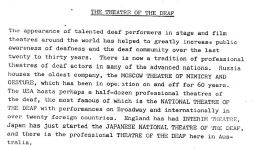 "Australian Theatre of The Deaf - NSW Theatre of the Deaf - History, Work, and Theatre In Education 1982" Australian Theatre of The Deaf History, Work, and Theatre In Education 1982 - Australian Theatre of the Deaf purpose “give positive credit to the expressive capabilities of Australian Sign Language and the people who use it” and provide “high quality performances and making them accessible to the greatest number of people in Australia.” Focus on Theatre in Education, including visual theatre workshops. Explanation that “Sign language is not universal, as many would believe. Each country has developed or borrowed one of the various manual alphabets and sign systems to create individual national languages. Many would opt for an international sign language, but the value of the individual languages is that the gestures often reflect a nation's perspectives and cultural traditions.”
"Australian Theatre of The Deaf - NSW Theatre of the Deaf - History, Work, and Theatre In Education 1982" Australian Theatre of The Deaf History, Work, and Theatre In Education 1982 - Australian Theatre of the Deaf purpose “give positive credit to the expressive capabilities of Australian Sign Language and the people who use it” and provide “high quality performances and making them accessible to the greatest number of people in Australia.” Focus on Theatre in Education, including visual theatre workshops. Explanation that “Sign language is not universal, as many would believe. Each country has developed or borrowed one of the various manual alphabets and sign systems to create individual national languages. Many would opt for an international sign language, but the value of the individual languages is that the gestures often reflect a nation's perspectives and cultural traditions.”
